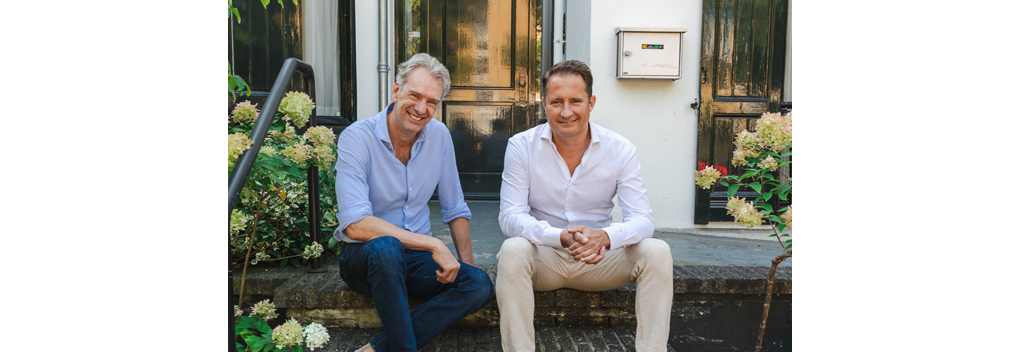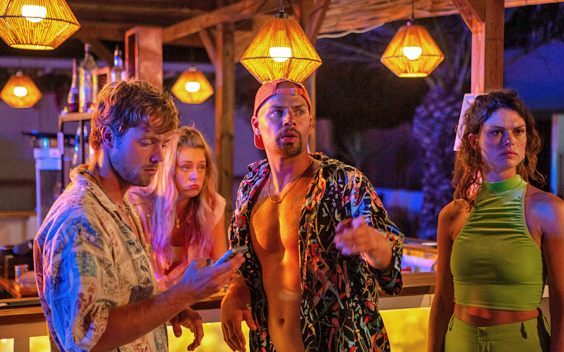Bert Habets and Taco Rijssemus: No guts, no glory
Bert Habets, CEO of ProSiebenSat.1 Media, and Taco Rijssemus, CEO of All3Media in Germany, hold top positions in the German media landscape. What is that like, what lessons are learned there and what are the challenges in a market that is suffering from economic malaise? “Germans don’t like surprises.”
We meet on a sunny September afternoon at the office of FC Klap, on the Friday that both gentlemen normally return to the Netherlands – Rijssemus in Amsterdam, Habets in Blaricum – for the (family) weekend. Furthermore, their working lives mainly take place in Germany. Rijssemus has an apartment in Berlin, but also regularly visits other German cities and parent company All3Media Group in London, while Habets lives in Munich during the week. We start the conversation with a development that continues to have a grip on the global media industry: Artificial Intelligence.
Does it surprise you too, or maybe even scare you a little?
Bert Habets: “Well, it is a striking example of how quickly developments are going. There is enormous efficiency in terms of editing and scriptwriting, but also in the entire creation and video production process. Everyone is working on this on a global scale and we at ProSiebenSat1 have also set up a so-called Taskforce Gen AI. For example, we use it in channel planning: based on the profile of a series or film and an analysis of ratings and the competitive field, you are provided with a basic program schedule. We now test this every month against those who do it manually and there is now almost no difference; it is actually a matter of time until Gen AI is better, because these self-learning systems are becoming smarter very quickly. Using a range of criteria, they analyze what a human brain cannot process at all in order to make good choices. The systematic and labor-intensive work processes will see a huge increase in efficiency with Gen AI and that is something where we as an industry can still take enormous steps.”
“On the other hand, I think that you can never predict everything in advance via AI and that the major unorthodox innovations will not be devised by Gen AI. But time will tell! There will always be a large number of variables that the algorithm cannot ‘read’ in advance. But for existing formats and programs and, for example, content from the US that is supplied to you under license, Gen AI is simply becoming better and easier to use. I always say: 80% is a push of the (prompt) button, the remaining 20% will remain human thinking in our industry.”
Taco Rijssemus: “In addition to that important efficiency aspect, there is of course also the creative side. I see that technological developments now make things possible that were unattainable for us five years ago. To shoot historical scenes we no longer have to travel with trucks and a crew to some village in the Czech Republic. When I see what one of our companies, south &browse, can already do digitally with CGI and VFX, I am amazed. I think AI is the next step, although I also find it a difficult term, because what exactly does that include? In any case, I am convinced that the turning and production process as we knew it will change drastically in the coming years. The fact that we all have to watch our euros also helps in embracing that innovation. You notice that everyone is very open to working with AI, both creatively and production-wise, and that is great to see.”
“You notice that everyone is very open
deals with AI, both creatively and
productionally, to get started”
After a long career at RTL, both in the Netherlands and at the Group, Habets first took a sabbatical and subsequently built up his own investment portfolio of media and media-related companies. “Including companies in which I was sometimes intensely and sometimes less closely involved. This resulted in a daily schedule that often left me wondering at the end: what did I actually do? I missed the overarching goal of bringing something from A to B as a team, and I noticed that I also missed the heartbeat of the media sector. I wanted to take on a role in the media again and then someone from my business network who I had known for a long time came forward: Theo Kyriakou from the Greek Antenna Group. I ran that company for about six months, but it just wasn’t a fit. In the meantime, I had become a supervisory director at ProSiebenSat.1 and when they heard that I was leaving Antenna, I was quickly approached to become CEO. So I have been there since November last year and I really like it, it is a great company.”
Very diverse too, Habets explains, because ProSiebenSat.1 Media “actually has three major branches. Entertainment of course, with a total of seventeen channels focused on Germany, Austria and Switzerland and a fairly large in-house production department. It also includes Joyn, our streaming video platform that has long had a joint venture with Discovery. When that company was taken over by Warner, which has its own VOD ambitions, Discovery was no longer allowed to invest a euro in Joyn, even though it did have 50% of the shares. That impasse was a shame, because it means we are now quite late in developing our digital streaming strategy. At the same time as I started, we immediately became 100% owners, because we are going to invest heavily in it.”
“Our second branch is called Commerce & Ventures, in which we invest in young, successful digital companies, often e-commerce-like, with which we make airtime for equity deals or revenue deals, among other things. The power of television and digital media is combined, allowing those companies to grow much faster. For example, we have flaconi, a large e-commerce perfume and cosmetics platform, and Verivox, a price comparison platform for energy and telecom products, among others. And our third branch is dating, where we have a turnover of approximately 500 million and we are number 3 worldwide. But after the strategic reorientation, the focus is really on entertainment. We have had companies outside the Entertainment segment in our portfolio for a long time, but they have no synergy with Entertainment and actually add little besides the fact that they need TV airtime to grow further. That is why we start from the established Commerce & Ventures portfolio and our Dating branch will eventually be phased out and sold, because I want to take our channel company and digital ambitions to the next phase. We aspire to become the number one entertainment player and are rapidly building our all-in-one free entertainment streaming platform on the German-speaking market. We are still quite far away from that today, but we will invest heavily in those growth ambitions in the coming years.”
“We aspire to be number one
to become an entertainment player”
Taco Rijssemus has its own challenges, especially now that parent company All3Media has been in the sales window for some time. “Of course I cannot and may not say anything about that, but even though it is not an easy market, we invest in Germany because we believe in the potential. The size is enormous and so are the possibilities for our various business units. For Bert’s Sat.1, for the first time, we are now making Die Landarztpraxis, a kind of ‘soap fiction’, recorded on location.” Habets nods: “An important new strategic direction for us, I don’t think we have had any fiction on Sat.1 for the past fifteen years. It was already in development before I arrived, at completely different budgets than the German market is used to. That might be a bit of that Dutch color, to produce something like that in a different, cheaper way.”
The series is already broadcast at 7 p.m., which, according to Rijssemus, makes a big difference. “In Germany, daytime programming is very important, while in the Netherlands it cannot be financed. The scripted reality genre, which never really got off the ground in the Netherlands, is popular among the Germans and our film pool entertainment branch is the market leader there. Furthermore, we are very much experimenting with fiction. (Laughing) I also listen carefully to what Bert says. (To his neighbor) When you joined ProSiebenSat.1, you said that the streamers’ product offering is actually very one-sided, based on expensive high-end fiction, while ultimately they don’t make any money with it. This naturally poses an interesting challenge for us as producers: which other genres can we develop in collaboration with streamers that are at a different price level, and how can we think along to reduce their churn, for example?”
“Apart from the fact that you can watch so many more channels in Germany than in the Netherlands, the streamers also play a much more serious role in what they spend on content, although unfortunately this is now declining. Sky no longer even orders fiction at all,” Rijssemus continues. “And you are talking about different amounts. I think the production value is extremely high, incomparable to the Netherlands. As a creator, that makes me very enthusiastic. On the other hand, I see you see that the German market moves more slowly, is more conservative and less into experiments. It is also much more of a licensing market, with long-standing titles and formats. They also have a nice word for that: Dauerbrenner. (Laughs) You see them Let’s go, those program diesels. Take Big Brother for example, that has never stopped in Germany.”
“The culture is generally wait-and-see: ideally something should have already been successfully launched in a number of European countries and America, and in terms of format development, as a Dutch person, it takes some getting used to how things are analyzed in detail before choices are made. In the case of The Traitors this was also due to the genre, which is simply difficult in Germany. The fact that it took a relatively long time before we were finally able to sell this internationally enormously successful program to RTL has everything to do with German culture.”
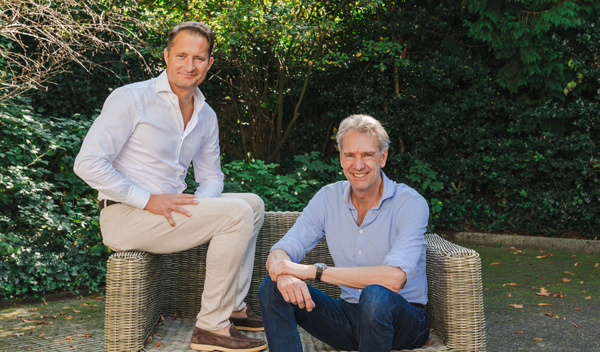
“I firmly believe that fear
is one of the things that
kills creativity”
“I firmly believe that fear is one of the things that kills creativity. And in Germany there is more fear of doing something wrong than in the Netherlands, I think. We are a little more forgiving. Okay, this didn’t go well, and on. It’s an open door, but making mistakes is allowed. I’ve had a few major flops at IDTV, that’s unavoidable, but that doesn’t immediately reflect negatively on your production company if you also make a few successful and beautiful things. I have the feeling that in Germany it all weighs much more heavily. (To Habets) I’m curious how you see that.”
BH: “I always say: at RTL Nederland I was ultimately CEO, but I never had the feeling that I was the CEO on a day-to-day basis. In Germany I am the CEO and I feel that way every day, simply because that hierarchy is experienced and applied completely differently. I often try to challenge and be part of the discussion and therefore receive feedback, but people still find that difficult.”
TR: “No matter what I try to encourage cooperation and remove fear, that remains quite a challenge in Germany. I have noticed that the moment I say in the company: we are here and we are going there, the question immediately becomes: okay, okay, okay, what does the plan look like? Can you explain this, preferably methodically supported, in 15 steps? And if I then answer: well, I have thought carefully about step 1, but we have to experience steps 2, 3 and 4, then people become very nervous. So I think you should dare to allow yourself that in the creative process.”
BH: “I understand very well what you are saying. If you want to get something from A to B, you have to describe that process in great detail, because Germans don’t like surprises. They prefer to fill in what the boss thinks. You want people to look left and right and find their own way in an enterprising and creative way.”
For Habets, the focus for the next two years will in any case be on Joyn, which should be available everywhere for the widest possible target group, completely free of charge (completely financed by advertisements). “We originally have a fairly young profile because we work a lot with young talents and influencers. Unique content has been developed for and with this on Joyn and we will continue to do so. We will also expand our Originals offering and strengthen primetime programming on the TV channels, which will also have a positive effect on Joyn. And we are open to working with other partners. The platform already offers space to public and a large number of regional broadcasters and numerous international channels. We really offer a wonderful total offering, for young and old, made free and easily accessible. Now that the content/investment impasse with Discovery is over, we can start taking big steps.”
“We want a streaming video platform
building where we actually make the best of it
trying to bring television and social media together”
The development of the advertising market in Germany, which is directly linked to the economic malaise in our eastern neighbors, is a challenge. “The energy crisis and dependence on Russian gas in Europe has had the most impact in Germany, which is currently experiencing a real recession. And things have not been going well for a long time, especially in the media sector. So on the one hand the market is still large, but it is under considerable pressure and has been declining for years. This means that you have to structurally adjust the cost base downwards, while there is a need to grow the channels and, above all, to invest in Joyn.”
In that respect, Habets has managed to entice its shareholders to take a striking step: a significant cut in the dividend, which provides more room to invest in TV content, technical digital streaming expertise and room to further develop the digital program offering. Habets: “We want to build a streaming video platform where we actually try to bring together the best of television and social media. For example, we have famous TV chefs in the program Promibacken, but also more and more cooking talents from social media who can create premium content for Joyn. That cross-pollination, also in terms of marketing, is the new way of thinking we believe in. There is a lot of production expertise and craftsmanship in our company, also in combination with partners such as All3Media and Talpa, with which we have a first look agreement for two years.”
The future seems a bit more uncertain for Taco Rijssemus due to the fact that mother All3Media is in the sales window. “This is a bad year for the manufacturing industry and things are moving slower than you would like. But we are moving in the right direction with All3Media in Germany, the Netherlands and Belgium and I still enjoy what I do. That has always been the main motivation for me, I have never pursued leadership in the media. I have always been very curious about personal development and I am now experiencing that in Germany. That first day I arrived in Berlin, with my coal German that I had studied so hard on – I still have to work really hard on the language – I found it quite exciting. To have such a large organization under your control, to learn new things, to be addressed in a different way and to have to do your very best to get something done, that appeals to me enormously. Then I also feel privileged that I can do something so cool.”
About Bert Habets and ProSiebenSat.1 Media
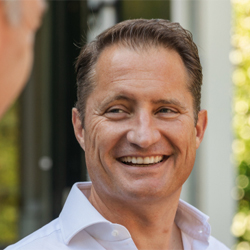 Bert Habets has been CEO of ProSiebenSat.1 Media since November 1 last year. He was appointed by the shareholders as a member of the Supervisory Board of the German media company in May 2022. Habets was CEO and co-CEO of RTL Group from April 2017 to April 2019, after being CEO of RTL Nederland from February 2008 to June 2017. After leaving RTL Group, he became CEO of the Greek Antenna Group for six months in October 2021, from which he quickly left.
Bert Habets has been CEO of ProSiebenSat.1 Media since November 1 last year. He was appointed by the shareholders as a member of the Supervisory Board of the German media company in May 2022. Habets was CEO and co-CEO of RTL Group from April 2017 to April 2019, after being CEO of RTL Nederland from February 2008 to June 2017. After leaving RTL Group, he became CEO of the Greek Antenna Group for six months in October 2021, from which he quickly left.
ProSiebenSat.1 Media is mainly active in Germany, Austria and German-speaking Switzerland and employs approximately 7,800 people. The company’s traditional core activities are housed in Seven.One Entertainment. This includes TV channels such as ProSieben, Sat.1, Kabel1, Sixx, Sat1 Gold, 7MAXX, Kabel1DOKU Puls4, ATV and the streaming service Joyn. The production companies SevenPictures and Seven.One Production are also included, as is the sales house Seven.One Media.
Furthermore, the production companies Red Arrow Studios, Studio71, a controlling interest (53%) in the dating app company ParshipMeet Group and an investment arm Commerce & Ventures under ProSiebenSat.1 Media, which is based in Unterföhring near Munich.
MFE-MediaForEurope (formerly Mediaset), the (officially) Dutch-based listed media company of the Berlusconi family (Fininvest), is the largest shareholder of ProSiebenSat.1 Media with a stake of more than 29%. The Czech investment group PPF Group recently acquired an interest of approximately 15% in ProSiebenSat1. The other shares of ProSiebenSat.1 Media are listed on the stock exchange. See also this website.
About Taco Rijssemus and All3Media Germany
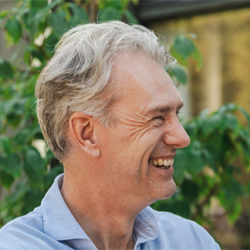 Taco Rijssemus has been the CEO of the production company All3Media in Germany since September 1, 2021. This company encompasses the Dutch and Belgium markets with Dutch producers IDTV and ICP, as well as the Belgian All3Media. In Berlin, he leads All3Media Germany’s production companies, which include All3Media Deutschland Fiction, filmpool entertainment, filmpool fiction, Magic Connection, south&browse, The Fiction Syndicate and TOWER.
Taco Rijssemus has been the CEO of the production company All3Media in Germany since September 1, 2021. This company encompasses the Dutch and Belgium markets with Dutch producers IDTV and ICP, as well as the Belgian All3Media. In Berlin, he leads All3Media Germany’s production companies, which include All3Media Deutschland Fiction, filmpool entertainment, filmpool fiction, Magic Connection, south&browse, The Fiction Syndicate and TOWER.
The British All3Media Group has grown to 50 labels in UK, US, Germany, the Netherlands, Belgium and New Zealand and produces more than 4,000 hours annually for linear broadcasters, VOD, social media and other digital platforms.
Rijssemus’ career began in 2000 at SBS, where he held various positions for eight years, including editor-in-chief of Hart van Nederland and director of SBS Productions. He later served as the director of the KRO for over five years and then as the media director of the merged broadcaster KRO-NRCV for three years. In 2017, Rijssemus became CEO of IDTV before moving to Berlin.
“All3Media is a federal company, and we draw a lot of creativity from our labels by giving them the freedom to develop new and different formats and content”, says Rijssemus. “The visibility of our production labels is paramount, with the parent company’s brand playing a different role. I am convinced that in this federal structure in Germany, the Netherlands, and Belgium – the markets for which I am responsible – we are developing strength through diversity that few can offer.” For more information, you can visit this website.
Questions via AI
What happens if you instruct ChatGPT to ask Bert Habets and Taco Rijssemus five questions about their company and their personal vision? Here is the remarkably good result, the answers to which have largely been incorporated into the above story.
ProSiebenSat.1
ProSiebenSat.1 has undergone several strategic changes in recent years, including the focus on digital growth. Can you tell us more about the company’s evolution and future direction?
What are some of the most notable successes and challenges that ProSiebenSat.1 has faced in expanding its digital operations and international presence?
To what extent has ProSiebenSat.1 adapted to the changing media industry, especially with regard to streaming services and competition with major players such as Netflix and Amazon Prime Video?
Can you tell us more about ProSiebenSat.1’s role in promoting sustainability and corporate social responsibility in the media industry?
How do you see the future of linear television compared to streaming services, and how does ProSiebenSat.1 respond to these shifts in viewing behavior?
All3Media Germany
All3Media is a leading media company with a wide range of productions and formats. What are some of the most notable projects or successes that All3Media Germany has achieved in recent years?
The media industry has evolved rapidly in recent years, especially with the rise of streaming services and digital platforms. How has All3Media Germany responded to these changes and how do you see the future of traditional TV production in this context?
The media industry has evolved rapidly in recent years, especially with the rise of streaming services and digital platforms. How has All3Media Germany responded to these changes and how do you see the future of traditional TV production in this context?
Can you tell us more about the creative processes and collaborations within All3Media Germany? How does the company drive innovation and original content creation?
All3Media has an impressive international presence. What strategies has All3Media Germany implemented to grow in the German market and beyond?
Sustainability and corporate social responsibility are becoming increasingly important in the media industry. How does All3Media Germany integrate these values into its business practices and content productions?
Bert Habets/Taco Rijssemus personally
What drove you to become CEO of ProSiebenSat.1/All3Media Germany and what are some of the key learning moments you have experienced during your time in this role?
As a leader in the media industry, how do you deal with the constant changes and challenges this sector brings, and how do you stay innovative and adaptable?
Can you tell us a little more about your personal vision and goals for the growth and development of ProSiebenSat.1/All3Media Germany?
What are some of the most notable creative or business achievements you have achieved during your time at ProSiebenSat.1/All3Media Germany?
For young professionals aspiring to leadership positions in the media industry, what advice would you give them based on your own experiences?
Source: BM
Photos: Koen Helder
